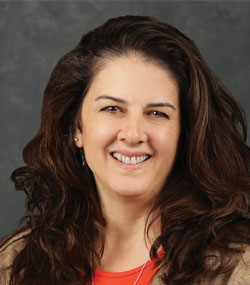
Some of the greatest assets he gave our farm are the practical ways that he made medical decisions for our animals, the quick response he had to illness, and the time he took to teach us how to do things for ourselves. He was unique in his ability to eyeball a cow and diagnose its issues.
Early in our dairy career, we would call him every time a cow came down with milk fever or had a difficult calving. Duane remembers calling him during the night, and Elmer would always answer on the first ring. Duane would apologize, but he never complained. “It’s my job,” he would reply.
Eventually, Elmer taught Duane how to do these treatments. He also looked at calves with the same practicality and taught me how to identify sickness quickly before the calf became severely dehydrated.
Shortly after we were married, Elmer hired a veterinarian to share the workload, and Julie was equally logical in her decisions. They were both very helpful in teaching me the finer techniques in managing calves.
Unless there was an urgent call waiting at the other end of our visit, Elmer and Julie would spend time talking us through whatever needed to be done to get our animals back on the right path. Several times they would leave medication for us to do the next treatment ourselves.
Obviously, getting the last dollar out of us was not his goal. Taking care of our animals and teaching us how to be better caretakers of our farms was top of his list.
I have always asked a lot of questions when a veterinarian was treating our calves. Prevention is such a key part to farming. If I can spend a bit more time changing a practice to prevent a sickness, I am much further ahead. Treating sick calves is frustrating, and it costs us time and money. Neither one of those are good for the bottom line or the farm’s morale.
The summer heat is always tough on the calves, especially when they start to feel sick. It does not take long for a calf to go downhill fast when the temperature is kicked up to a high level. Dehydration literally drains the life out of them.
Elmer taught me the importance of giving calves fluids and how to detect that need early. If I can see early warning signs and act accordingly, I can usually turn the calf around.
Even though Elmer has long retired, we still look at our veterinary service as a critical component of our dairy farm. The cow doctor stepping onto our farm needs to have our animals’ best interest and the economic interest of our farm front and center.
Veterinarians are a key part of our efficiency and profitability. It does not matter how many cows are on a farm. One guarantee is that someday, the cows will need attention from a veterinarian to check for pregnancies, diagnose a sick cow, or complete a surgery.
The vet service we use currently also gives us great care. They take time to help our employees understand the best treatments and solutions for the farm and the animal. The veterinarians at New Bolton Center also spend time training our employees new protocols, best management practices, and help us document our Farmers Assuring Responsible Management program (FARM).
That extra attention always goes the extra mile for people touring our farm. One visitor was surprised to hear how much oversight is provided by our veterinarians. The only vet experience she knew was with her dogs, and that was as needed or for an annual check up. An ongoing relationship and consistent oversight was a new concept for her and not what she envisioned for our farm.
There is no doubt that lies are spread like manure concerning farmers lack of care for their animals. We know that is far from the truth. Not only do we care for the animals on our farms, but we also have a strong relationship with our veterinarians, who guide us in that process.
Dr. Laffey laid some deep groundwork with the quality of his service to our farm. We recently found out that before Elmer finished vet school, he had his own dairy farm. Maybe that explains why he understood the benefits of doing things for ourselves. He knew what it was like to depend on a milk check to pay the bills.
It was nice to start our farming pathway with a veterinarian who cared as much about teaching us how to take care of our animals as he did about doing it himself. The cadence in which he gave Duane and I early on has always stuck with me. Rest in peace, Dr. Laffey. You certainly were one of the best.
The author and her husband, Duane, own and operate a 550-cow dairy in Cochranville, Pa.









